Alan Jones: Budget failure to mention aged care is outrageous
Protect the vulnerable has been the catch-cry of the pandemic - yet the aged care sector barely rated a mention in Tuesday night’s budget speech, which means elderly continue to be put at risk, writes Alan Jones.
Opinion
Don't miss out on the headlines from Opinion. Followed categories will be added to My News.
The three architects of Tuesday night’s budget, the Prime Minister, the Treasurer and the Finance Minister, have all been at pains, repetitively, to describe the budget as a coronavirus budget.
That is surely debatable.
The economic crisis we face is more a consequence of the response by the government to the health crisis.
Indeed, the Prime Minister himself warned on March 15 this year, when talking about the virus, “For the majority, around 8 in 10… it will be a mild illness and it will pass. However, for older Australians, and those who are more vulnerable, it is a far more serious virus and that is our concern. Our aim in all of this is to protect the most vulnerable, the most at risk.”
Well, those most at risk fall under the category of aged care.
And, plainly, they weren’t protected.
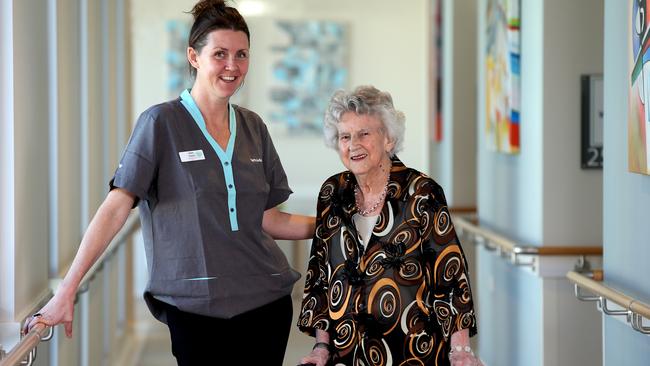
MORE ALAN JONES
Why Donald Trump is the man for our moment
Government leaving us all in the dark on energy policy
The bush can’t bear it as lefties ignite koala war
But if it was a coronavirus budget, as we were constantly reminded, it seems extraordinary and politically risky that the aged care sector barely rated a mention in the budget statement.
Almost all of what was said in the budget presentation related to what the economists call “fiscal policy”.
Basically, fiscal policy is about spending.
It has two powerful components, one is ideological and the other is political.
Fiscal policy rarely has anything to do with good economic management.
This was a budget from a government burdened with the fact that the response to the coronavirus was disproportionate, that business was put out of business and workers were put out of work in a massive over-reaction.
Hence spending programs everywhere.
Yet the sector which suffered most, the aged care sector, where, if figures are to believed, almost 700 people died because the vulnerable weren’t protected, are ignored in the budget in what seems to me to be fiscally irresponsible and politically dangerous.
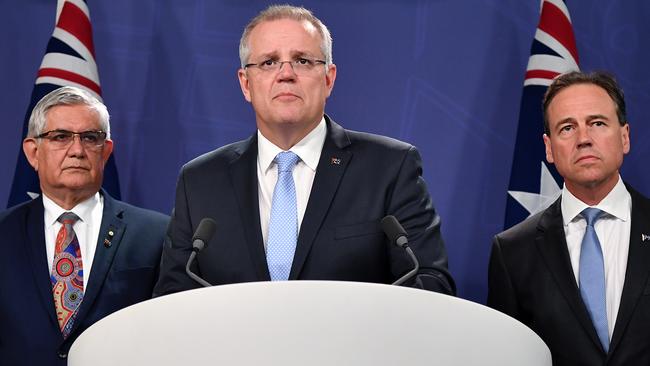
The government is now saying well, there is an Aged Care Royal Commission, it will deliver its report and the sector will have to wait until the 2021 budget.
Yes, the government announced an additional 23,000 home care packages.
But do we have the trained staff to be able to make that commitment meaningful?
There are many older Australians, and their families, who must be wondering this week why the government is gun-shy on a sector which, without overstating it, is in disarray.
Counsel Assisting the Aged Care Royal Commission, Peter Rozen, said in August there was no nationally coordinated plan to help the aged care sector deal with Covid-19.
From day one, we knew the elderly were at risk.
Tony Abbott was Health Minister back in 2005.
He provided a clear path, in writing, by which Governments could successfully navigate their way through something like the coronavirus.
All of that was ignored.
The Aged Care Royal Commission found that neither the Commonwealth Department of Health nor the Aged Care Regulator had any specific plan for the aged care sector.
This is staggering in its incompetence and betrayal of our elderly.
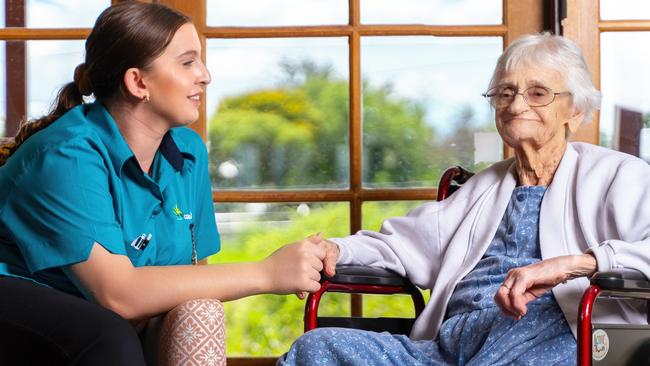
Governments mouth cliches about dignity in old age.
Dignity was abandoned long ago.
Every residential aged care facility, to be accredited, is expected to have infection controls in place.
Yet, across the aged care sector, there have been failures in clinical care and infection control which failures have resulted in hundreds of deaths.
Make no mistake.
This is a massive sector.
There are currently 189,000 residents in 2695 aged care homes on any day.
These residents are supported by approximately one million immediate family members.
The homes are operated by 873 aged care providers, ranging from listed public companies to a single facility small business.
The industry employs over 300,000 employees, predominantly female and qualified at a certificate level.
Many families have paid hundreds of thousands of dollars to gain access to one of these aged care homes.
Many have sold their own homes or other assets.
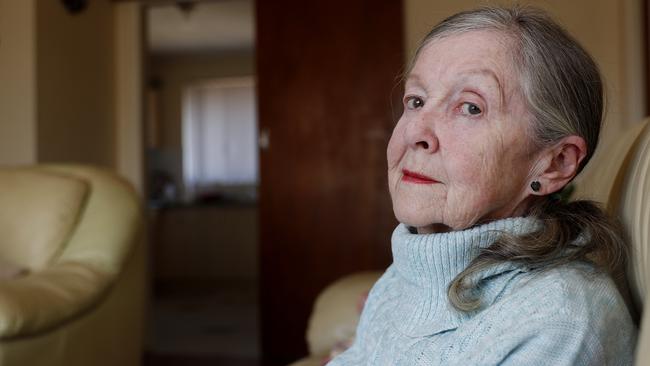
Put bluntly, what have they bought?
Death for their loved ones.
Yet the Prime Minister said on March 15, “Our aim in all of this is to protect the most vulnerable.”
This did not happen.
As a result, there have been somewhere near 700 coronavirus deaths and the Aged Care Royal Commission, in its interim report released last week, criticised “deplorable” infection control regimes at some nursing homes; found a “traumatised” workforce and recommended urgent funding injection.
The budget produced nothing.
Professor John Pollaers was the inaugural Head of the Federal Aged Care Workforce Strategy Taskforce in 2017.
The government’s own experts have warned that they need an extra $3.5 billion a year to provide adequate care; and even that, it is argued, is at the low end of what is needed.
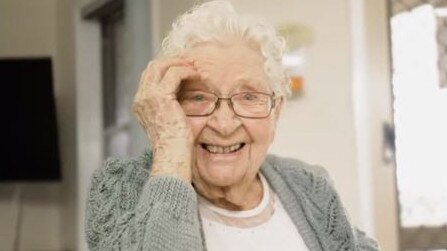
A report on staffing levels commissioned by the Aged Care Royal Commission found 57.6% of residents are in homes with staffing that would rate only one or two stars.
Last Thursday’s interim report identified, “Confused and inconsistent messaging.”
All to often, providers, care recipients, their families and health workers did not have an answer to the critical question, who is in charge?
The report said existing restrictions had, “Tragic, irreparable and lasting effects which must be immediately addressed.”
On Tuesday night, they weren’t.
To add to a calamitous picture, only last month the advocacy group Aged Care Crisis said, “Aged care residents in nursing homes have been raped, robbed, bathed in kerosene, attacked by rodents, suffered injuries or deaths from other residents, burnt to death, strangled, cooked, melted, sedated to death, over medicated or choked to death.”
Someone in government better understand this is beyond a crisis.
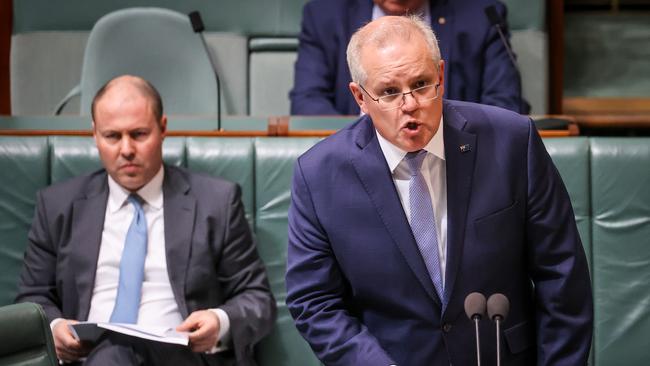
It is a scandal.
What we have today, forget the rhetoric, is a simple and straight forward abandonment of the elderly.
The decency of our society must be measured by our treatment of those who most need our help.
In relation to the aged, we have to stop running away from the fact that we have failed abominably; yet on the aged care front, the Government did just that on Tuesday night.
Amidst all the rhetoric that this is a budget for the times, one can only wonder what is the thinking today of the elderly and those who, one day, will be elderly and that is all of us.
There seems to be a warm inner glow about Government handing out borrowed money for thousands of Australians who should not be dependent on Government, but little for the aged.
It might be time to ask when this brand of fiscal stimulus will end and what will the end look like.

